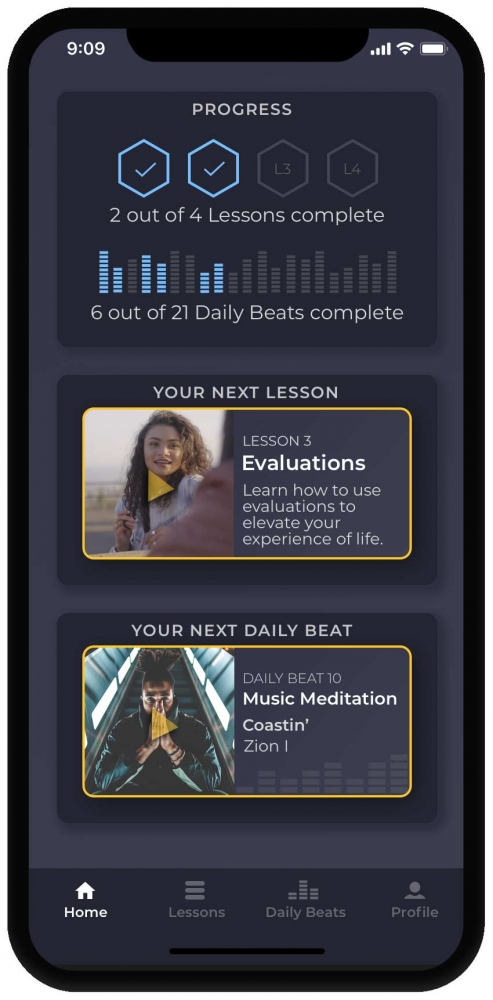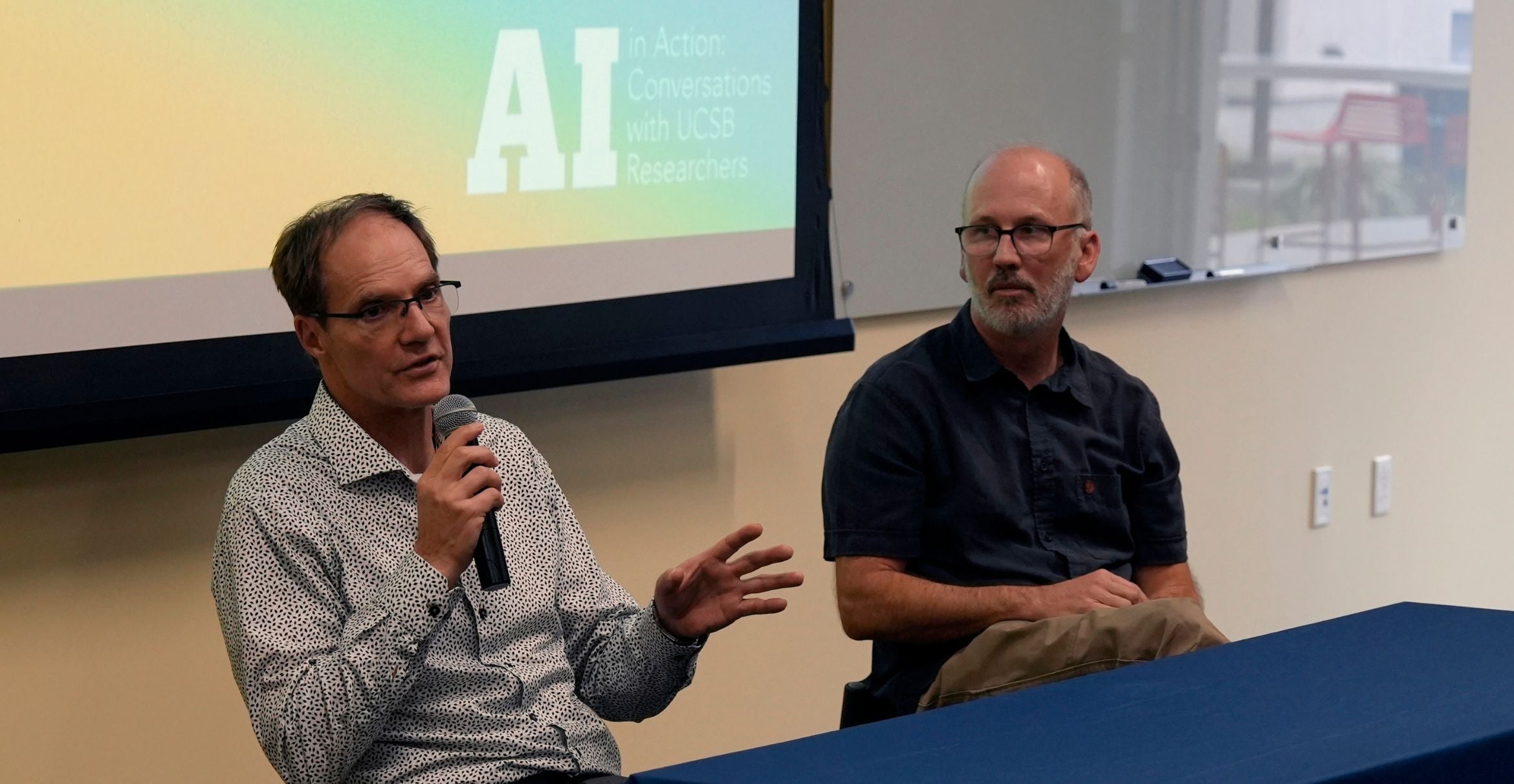Surviving the Era of Unlimited Distraction



Stress, distraction, unhealthy use of technology and rising rates of mental illness — life is increasingly tough for teenagers today, and educating them is a challenge at best. But researchers at UC Santa Barbara have found success in a new program to address those four themes, which stand out as struggles for the majority of high school students in the United States.
A new, evidence-based, online course that provides students with personalized attention training is being developed at the Center for Mindfulness & Human Potential (CMHP), part of the university’s Department of Psychological and Brain Sciences. The course teaches students to focus their minds and manage their emotions so they can succeed academically.
Twenty-five high schools around the country are currently using the course.
“We are quite encouraged by the enthusiasm that our program has received from both students and teachers. We are also heartened by preliminary findings of benefits for students who participate in the program,” said Jonathan Schooler, CMHP director and a professor of psychology.
In one study, published in the journal Education Sciences, the researchers surveyed 190 high school students before and after they completed the 22-day course. They found that students improved their ability to manage stress and regulate emotions. The study also revealed that students came to view their ability to focus as a trainable skill, and they felt more motivated and confident to train this ability. “We found that among the 82% of students who initially reported paying attention in class less than they felt they should, classroom focus significantly improved following our intervention,” Schooler said.
“Teachers everywhere are reporting that it’s increasingly hard to get students to actually pay attention,” noted Michael Mrazek, CMHP research director. “We’ve interviewed more than 200 high school teachers and principals over the last two years to understand their biggest challenges as well as their perspective about current challenges for teens. There’s a palpable sense of concern around increasing distraction, stress and mental illness. Individually, those are each distinct and important problems. Yet a lot of research has shown that mindfulness-based attention training is an elegant solution that can help address each of those issues. That’s why we’re so excited about finding the most effective way to bring this training into high school settings.”
The project is primarily funded by a development and innovation grant from the Institute of Education Sciences, the research arm of the U.S. Department of Education. The goal of the grant is to use empirical research to iteratively refine a digital course that can ultimately scale to provide evidence-based training to millions of high school students in the United States. The online course includes not only four 12-minute lessons and daily 4-minute exercises for students, but also a teacher interface that makes it easy for teachers to enroll students and monitor their progress.
“We deliberately designed this resource so that teachers don’t need to become topic experts to be able to share attention training with their students,” Mrazek said. “When a teacher creates an account, they get access to facilitator training as well as their own personalized 22-day course. Time is a precious resource for teachers, so the course is largely plug-and-play.”
Music plays an important role in most of the daily exercises. As Alissa Mrazek, a senior postdoctoral research fellow in the Department of Psychology and Brain Sciences, explained, the researchers have partnered with dozens of famous musicians to create training exercises for students. Students learn to focus their attention by listening deeply to music that is personalized to their preferred genre. “We ask students to try to keep their attention focused on the sounds they hear,” she explained. “Then when distractions arise, as they inevitably do, it’s an opportunity to practice letting go of that distraction and coming back to the music.”
Music plays an important part in most of the daily exercises.
Keeping the students engaged in the lessons is critical but also challenging, noted Michael Mrazek. “We’re constantly striving to use all of the best practices from educational psychology that optimize learning, and to implement them in fast-paced videos that resonate with a teenage audience,” he said. “It’s a delicate balance, and it’s forced us to develop a unique style that can both captivate and educate.”
“I was skeptical initially, just because I thought that pairing a digital format with mindfulness is kind of antithetical, that digital programs are really one of the largest distractions for our teens,” said Gabriel Villegas, a teacher at Central Coast New Tech High School in Nipomo, which uses the course. The program soon won him over. “I tried it with some of our students, and they loved the music options that were chosen and they loved the lessons.”
In Santa Barbara, San Marcos High School teacher Jeffrey Bailey is also a fan. “The feedback that I got from the students was that they felt, especially when they had a stressful day, the program helped them to recalibrate and refocus, as well as to be able to notice their emotions a little bit more without judging themselves.”
Each exercise is designed to help students achieve a mental state of calm and focus. “What we’ve heard from students and seen in some of our data is that these 4-minute exercises give students an immediate way to relax,” Alissa Mrazek said. “We’ve also had teachers say that when they start class with an exercise, students are suddenly more present and receptive to learning because they’ve let go of some of the anxiety that they had before class.

Center for Mindfulness & Human Potential (CMHP) app.
“The exercises help you relax in the moment,” she continued, “but they also train underlying skills that can be used to regulate your focus anytime you start getting worked up about something.”
The program is designed to be a “tier-one universal intervention that can teach preventative techniques to every single student in a high school,” Alissa Mrazek said. “All students experience stress and emotional challenges, and they all need access to evidence-based tools that help them understand and care for their own minds.”
Noted Villegas, “I think there is a movement in schools to be teaching the whole child, kind of a more holistic style instead of just academics. We’re realizing that hasn’t worked very well with all of the anxiety, depression and suicide rates.”
But how would training your focus improve your mental health? “Most people think about attention in terms of how long you can concentrate, but it’s much more than that,” Michael Mrazek explained. “Attention is a fundamental cognitive capacity that works like a spotlight, influencing what you actually experience in any given moment. If you train that fundamental skill, it not only allows you to focus better on a test but also gives you much more influence over how you relate to your entire inner world.
“I'm so excited about this project,” he continued. ‘What we’re trying to accomplish is very challenging, but all of my life I wanted to do something that really makes a difference in the world. When we were awarded this grant it was the first time I felt like we had a genuine opportunity to do it.”



